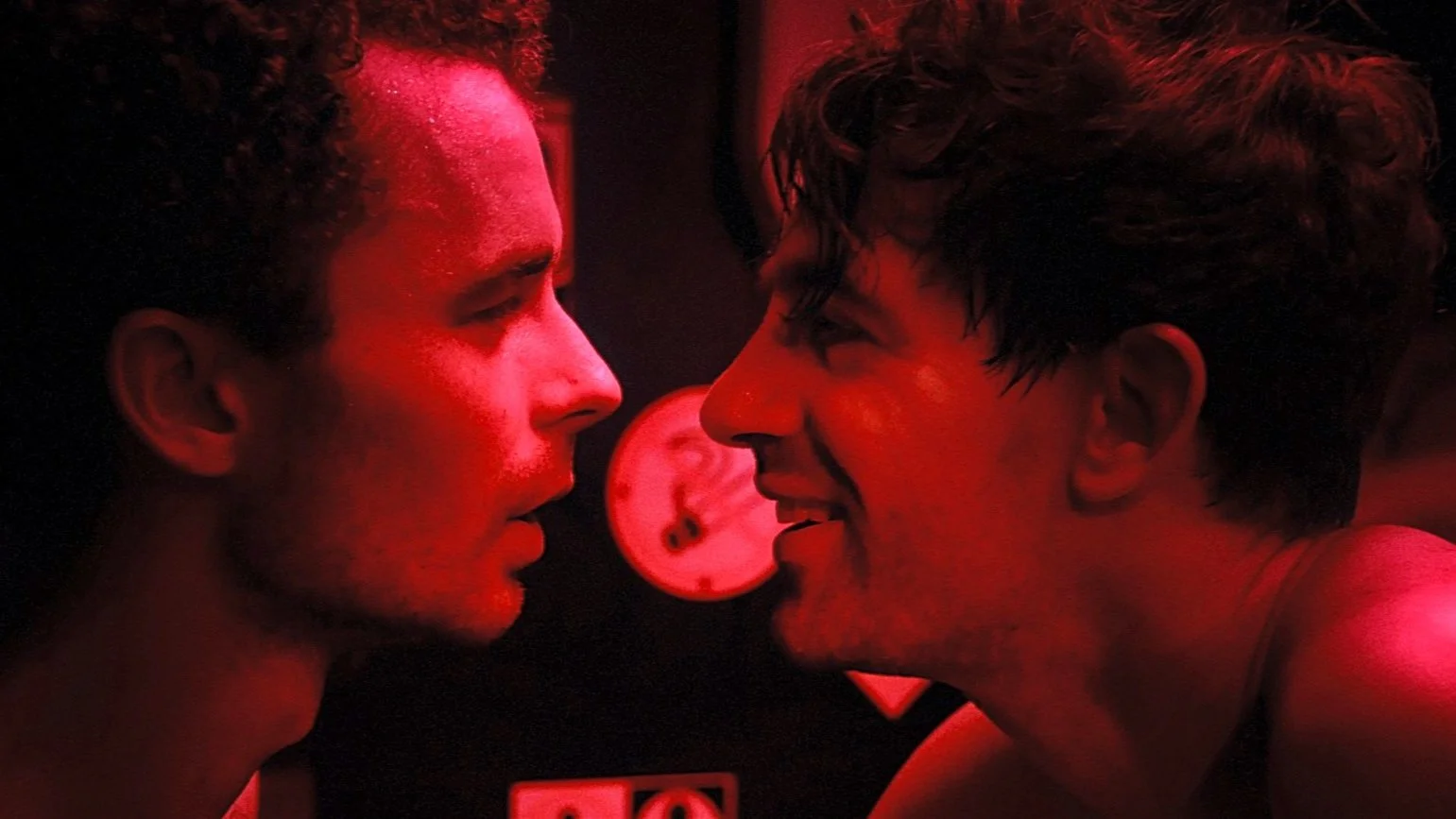Théo and Hugo
A gay movie from France fit to stand alongside Andrew Haigh's Weekend.
Geoffrey Couët and François Nambot
There are several reasons why Théo and Hugo can be described as a quintessentially French film: its two central characters, gay men in their twenties, talk about Balzac and Mauriac, the setting is Paris with a special emphasis on the Canal Saint-Martin, the subject-matter is love and sex and the film's approach to explicit images in sex scenes is no less extreme than was found in another French drama, Alain Guiraudie's Stranger by the Lake (2013). Nevertheless, this work, written and directed by Olivier Ducastel and Jacques Martineau and a marked advance on their earlier features (Drôle de Félix, Cockles & Muscles, Born in '68 etc.), invites comparisons with other films from various countries.
As the title indicates, this film, almost a two-hander, is all about Théo (Geoffrey Couët) and Hugo (François Nambot) and it shows how they meet one night in a gay sex club and fall in love. As a portrait of gay life that feels authentic, it evokes thoughts of the British film Weekend (2011), while the fact that the story follows real time over the film's 97 minutes and plays out at night echoes both the recent German production Victoria and Richard Linklater's wonderful study of a significant meeting of two strangers in Before Sunrise (1995). However, the story told also involves a medical issue since Théo and Hugo have had unprotected sex and Théo now learns that his partner, Hugo, who had not realised that, is HIV positive. Consequently the closest comparison of all is with another French film about the two hours during which a woman awaits news of a medical test, Agnès Varda's Cleo from 5 to 7 (1961).
The greatest achievement of this extremely well acted film lies in its ability to create a true sense of love being born in a context that conveys all the reality of a documentary (the latter aspect goes far beyond the explicit nature of the opening sex scene and finds perfect expression in a peripheral yet memorable scene in which Théo and Hugo catch the first metro of the day and talk to an elderly chambermaid who takes this journey every day).
But, although Théo and Hugo is remarkably accomplished, it does have one serious problem. In so far as it combines the explicitness of pornography with deep emotional feeling it echoes the success of 2012's I Want Your Love. That film, however, seemed to be aimed first and foremost at a gay audience whereas, in telling a story abut love arising in what some would undoubtedly see as sordid circumstances, Théo and Hugo is actually underlining common human experience by concentrating on the interrelationship between sex and love and ought to reach out to heterosexual viewers too. Although the sex club sequence is a crucial part of this story, the fact that the film plunges into it at once and at considerable length (almost twenty minutes) could easily put non-gay audiences at a distance and, indeed, alienate them. That could be a real stumbling block limiting the appeal of what proves to be an outstanding film.
MANSEL STIMPSON
Cast: Geoffrey Couët, François Nambot.
Dir Olivier Ducastel and Jacques Martineau, Pro Emmanuel Chalet, Screenplay Olivier Ducastel and Jacques Martineau, Ph Manuel Marmier, Art Dir Barnabé d'Hauteville, Ed Pierre Deschamps, Music Karelle + Kuntur.
Ecce Films/Épicentre Films-Peccadillo Pictures.
97 mins. France. 2016. Rel: 16 September 2016. Cert. 18.


